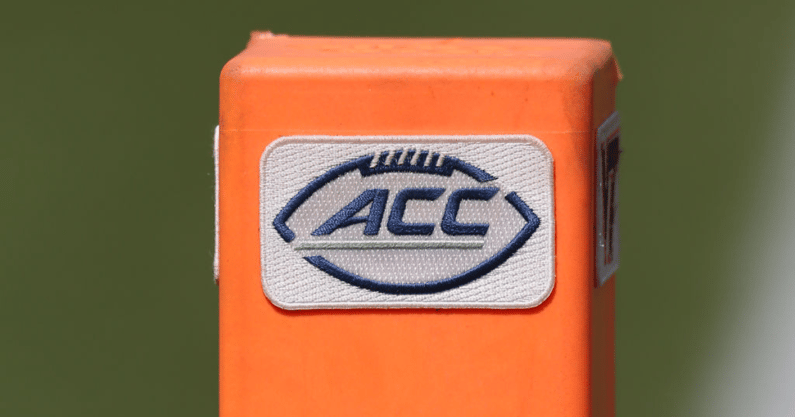ACC is 'dead in the water' and 'just doesn't know it yet' if Florida State leaves

Amid Florida State’s legal showdown with ACC over trying to flee the conference, On3’s Andy Staples was joined by Jeff Cameron of Warchant to break down the latest development on the On3 YouTube channel.
Currently, FSU is suing to try and avoid paying the exit fee due to the Grant of Rights in their ACC contract, which is set to cost them north of half a billion dollars if they tried to leave the league right now. However, the ACC has countered with their motion trying to get that lawsuit dismissed.
As this issue plays pinball on paper, Staples and Cameron discussed what the latest news means for the ACC. He revealed that an FSU board member recently came out with a price the school would negotiate to pay to get out of the conference.
“Peter Collins, chair of the board of trustees, said that If this were only $150 million, Florida State would have left already. So, we know they’d pay 150 million,” shared Cameron.
“He basically all but admitted that. Andy, I think somewhere in the neighborhood of $200-250 million. If tomorrow, they knew that was the number and they could be to negotiate with the Big Ten or SEC and move on from the ACC, I think they would do it,” he added.
Andy Staples chimed in to say that Florida State’s battle could pave the pathway for the other big-name programs to leave.
“If I’m Clemson, or if I’m North Carolina, and I have the same goals as Florida State, I’ve just gone about it a different way, now I’m looking at it like, ‘what do we have to do to negotiate this?’ I would assume the ACC knows that.”
If that’s the case, Jeff Cameron says the ACC could be done as a major league.
“If Florida State leaves the ACC and it opens the door, as you’re suggesting, for North Carolina and Clemson to do the same, the conference is dead in the water. There have been people that said the conference is dead walking around and just doesn’t know it yet.”
Part of the reason it’d be dead, per Cameron, is because the ACC wouldn’t be nearly as attractive at the negotiating table for their next TV deal.
“I thought that this would go to the bitter end to some extent, because I think the ACC has hinted as much that losing FSU at this point is akin to dissolving the contract with ESPN. Who’s signing up for that television contract without your major players?”
Top 10
- 1New
Kyren Lacy death
Tragic new details
- 2
Jarin Stevenson
Makes transfer commitment
- 3Trending
Tony Vitello
Shot at Nico Iamaleava
- 4Hot
Predicting Baseball Top 25
New No. 1 again?
- 5
Kanon Catchings
BYU SF commits to Georgia
Get the On3 Top 10 to your inbox every morning
By clicking "Subscribe to Newsletter", I agree to On3's Privacy Notice, Terms, and use of my personal information described therein.
Those losses may not help with the TV deal, but even at a couple hundred million bucks per team on the exit fee, that’s a decent chunk of cash to move forward with.
“Only thing I can think… is they’re using this for a potential cash infusion. Like, if they can get $300 million from each school, if it’s those three, that’s basically almost a billion dollars cash,” Staples laid out. “Which, time value of money, if you handle that properly, you can keep the corpse of that conference afloat for quite some time.”
Going back to the TV contract, Jeff Cameron just doesn’t know what a decent cash infusion does for the conference beyond the next 3-5 years.
“To what end? You could. It certainly does not become the viable asset to ESPN or to anybody else negotiating a long-term television deal down the line without a Clemson, without a Florida State, without a North Carolina.”
Going way back, Cameron blames the potential dissolving of the ACC on Jim Phillips for not making enough moves early on in to position the league better in the conference realignment landscape. The SEC and Big Ten took a stranglehold, the Big 12 pivoted but is going to be fine, and the ACC is really on a tightrope going forward.
“Jim Phillips never, in my opinion, seemed to understand the way this was going to play out and how aggressive his competitors were,” says Cameron. “There was a little naïveté there. He wanted to believe in the greater good, and yet, there was overwhelming evidence from his cohorts that they were out for blood. This was a race to see who would win the conference war.”
As of now, the ACC is looking like a big loser inn the grand scheme.